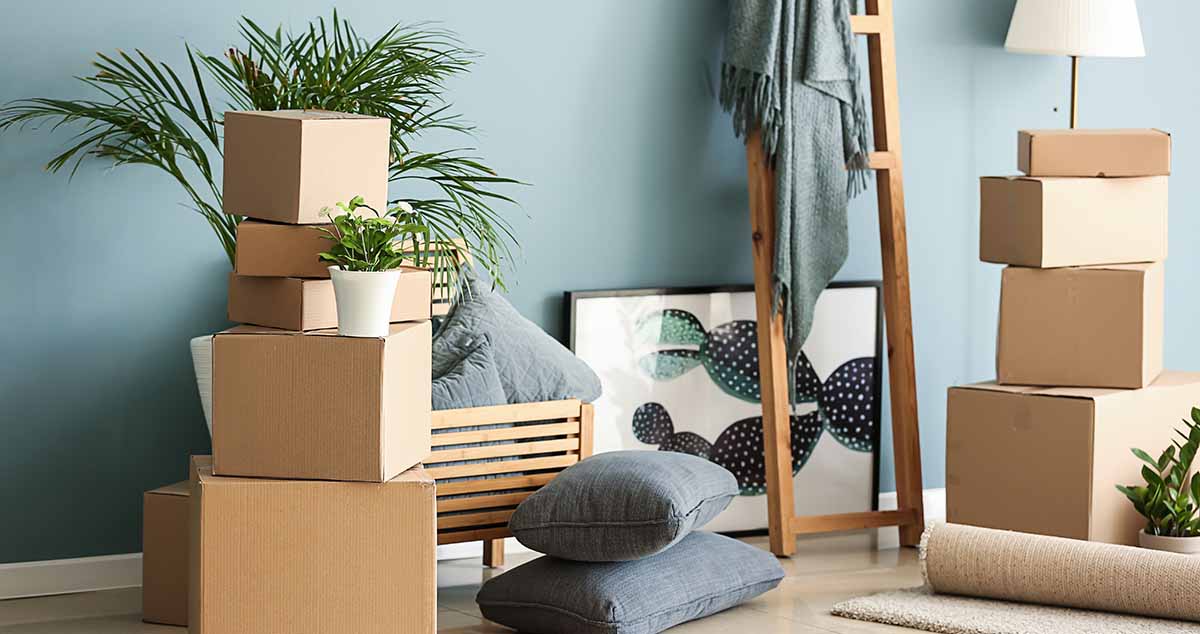According to studies by MoveBuddha, moving causes an enormous amount of waste annually. How much exactly? Well, the move-planning company’s research shows it’s about the tune of 900 million cardboard boxes, 8.4 million tons of trash, 345 thousand tons of food, 353 million gallons of gas, 90 million pounds of paper, and 30 million tape rolls. That’s… a lot, especially when most of that can be reduced, reused or recycled.
Moving to a new place can be pretty exciting and stressful all at the same time, so you may not be thinking about all the waste you’re generating during your move. Consider all the boxes you break down and throw away, and all the gas you use to get back and forth to your new home, office, or space. The excitement might be tempered by the sheer wastefulness of moving after looking at the numbers.
Luckily, it doesn’t have to be. You can move and still feel good about the process — by making sure you’re making green and sustainable choices during the packing and moving timeline. Here’s what you can do.
Responsibly Remove Your Clutter
It’s unavoidable — when you move, there will be stuff you don’t want to take with you. There’s a much better way to dispose of it than tossing it in the trash. First, pick a spot in your home that’s cleared out. Put all the items you don’t want to keep in that spot. Then go through it and decide what to do with each belonging. Maybe you can donate it to someone who needs it, or you can put everything into a garage sale. For the things you can’t donate or sell, research recycling programs and how the remaining items can be recycled. Some junk-removal companies will even handle it for you, which is great for rooms full of old possessions you want to leave behind (like the garage or basement).
Rethink Your Boxes
Who needs cardboard? Certainly not you. Invest in some sturdy plastic totes. They’re reusable, easy to pack and move, and save the waste generated by cardboard boxes. Bonus: they can be used after the move for storage. That being said, there’s a small investment up-front for those totes. If you can’t do that, then look for used boxes. Post in your neighborhood group to see if anyone has some, grab some leftover boxes from the grocery store, and drive around to different businesses to see if they’re getting rid of any. This can also save you money so you don’t have to go out and purchase boxes. You can also try to skip boxes and totes altogether, and pack your things into suitcases and reusable bags you already have laying around.
Donate Your Food
Check the “sell by” or “use by” dates on every piece of food you don’t plan to take with you. If you have unopened non-perishable items that are still good, put them all in a box and cart them off to a food bank. For things in the fridge that you don’t plan to keep, compost the food and recycle the packaging. It will also be beneficial to rein in your grocery shopping for the few weeks before you move. Only purchase the essentials or items that you know will come with you.
Use Movers With A Reduced Carbon Footprint
Search around town for moving companies that make a visible effort to reduce their carbon footprint. You’ll want to look for companies that do things like drive electric vehicles and keep all paperwork electronic. Ask each company about their sustainability measures when you’re vetting them for your move, and use that information to pick the most eco-friendly company. If you’re going to rent a truck and drive yourself, plan your route in advance to use the least amount of gas, and try to find a hybrid or electric truck.
Use What You Have Instead of Packing Materials
Bubble wrap, packing paper, and other moving materials can cause a ton of waste. Instead of using those, look around your home and use soft belongings instead. For example, try wrapping breakables in towels or shirts. Glasses can be put into thick socks. Televisions and other large items can be wrapped in your blankets. Use pillows for extra padding. If you absolutely need to use standard packing materials, pick ones that are biodegradable and recyclable, or something that you’ll be able to save and use later on — like using packing paper to wrap Christmas gifts.

